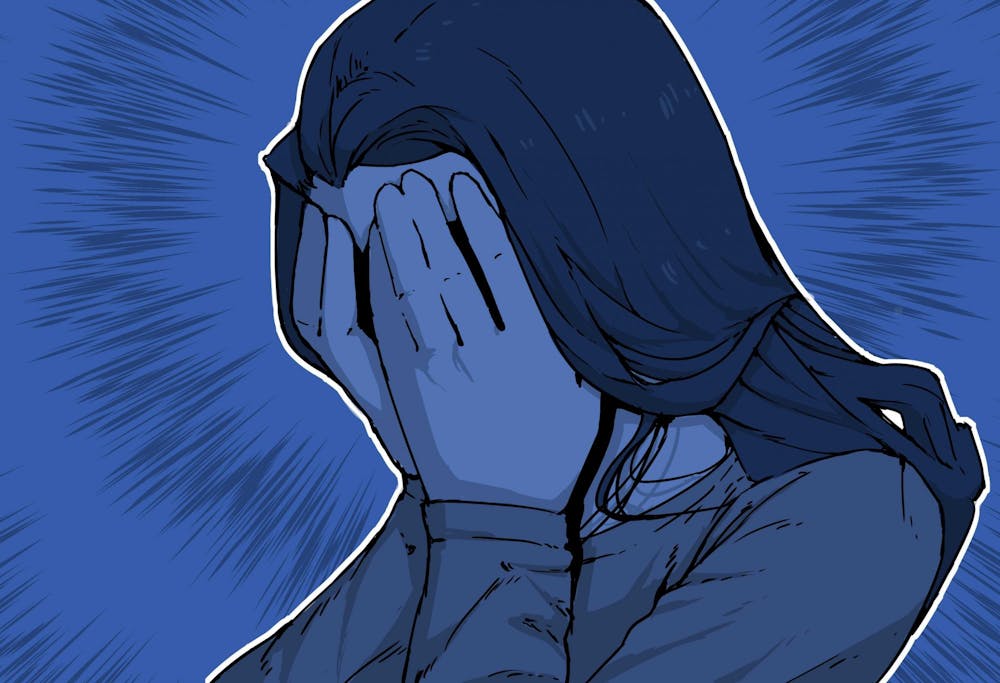Grief, in mainstream media, is often seen in grandiose depiction — the mother who lost her child, crying storms of tears and unable to leave the bedroom; the boy who lost his father, disabled emotionally to the point of depression; or, the woman who lost her husband, setting out on a journey to fill the void left behind.
Though these tableaux of grief are all accurate, and fitting of what we would think of as grief, what if I told you grief can take more than one form? That it isn’t just the loss of someone, but rather the loss of anything?
In quarantine, I’ve found myself spending days on end with nothing to do, and worse yet even nothing to feel. I yearn to go out with my friends — to go back to concerts, to go back to in-person classes, to go back to a time when we have a semblance of normalcy in our society.
For the first two months of quarantine, or rather up until the past few weeks, I ran from these feelings of grief — and yes, grief is exactly what they are.
We are inevitably grieving the lost time with friends, the lost time of our graduations that won’t happen the way we wanted, the friendships we may lose or never make as a result of this heartbreaking quarantine. Some of us are grieving on matters much greater, too. Like the loss of a loved one to COVID-19, or the loss of a job and the resulting stress over when we’re going to make our next paycheck. Grief, in its simplest form, is a natural response to the constant change essential to life on earth. It’s a response to loss, to pain, to change in its truest form.
The natural response to grief, I believe mostly reinforced by western societal norms, is to run away from it. We pretend it isn’t part of our experience, and exclaim that we would want nothing to do with it. We turn our experience into a mockery of the truth — Like when that boy I liked didn’t respond, or when my self-published book sold only two copies. We love turning a blind eye to the coffin of our hopes, forgetting that life is ever-changing.
The so-called five stages of grief — denial, anger, bargaining, depression and acceptance — though not as profound in their impact as they once were, serve as stepping stones for all of us through this process of grief. Often listed as a linear path, the path from grief is anything but; it’s twisted, convoluted and it can seep out every ounce of energy you have. For myself, I know that I often spend much of my time in the stage of depression, meandering on what once was and lamenting the fact that life has indeed changed. That I have indeed lost.
As with any emotional process, the “proper” response is not to pretend that it doesn’t exist. In doing so, we drag out the emotional downpour and it inevitably persists. Rather, we should lean in to grief; what is this feeling of grief? What am I saddened to have lost?
Eventually, once we have begun to learn our emotional patterns and how we respond to loss, we can begin to move through the stages and move forward to acceptance. We can learn to express gratitude for grief, even, as to have lost something means we valued that something originally. To have lost means to have loved.
We can then begin asking more insightful questions to our grief: What are my inherent values as an individual? What can this experience of grief teach me? How can I better cherish the time here I have been given? In doing so, we let the river of emotions flow, and we let go of the control that grief has over our lives.
Once we circumvent this cycle of grief, we may find that it has given us new gifts. We may realize that though these times are tough, they are indeed a reminder of how wonderfully precious life is, and what we take for granted on a daily basis. Once we are out of quarantine, or even right now as we are in quarantine, how can we alter our lives to better help and express gratitude for the ones we love? The things we love?
This era of quarantine is exceedingly difficult to live through, but as with the cycle of grief, we must ask ourselves, what can this experience teach me about life before? How can I take this experience to improve my life for others?
In doing so, we inevitably learn that we take so much of our lives for granted. Basic things such as going to the grocery store, spending a night on Mill Avenue, or eating a simple meal with family and friends. We can learn to be grateful, and I surely hope you do. For the times we cherish lie not behind or in front of us, but here: in this beautiful offering we call the present.
Reach the reporter at cbeal4@asu.edu and follow @beal_camden on Twitter.
Like The State Press on Facebook and follow @statepress on Twitter.




